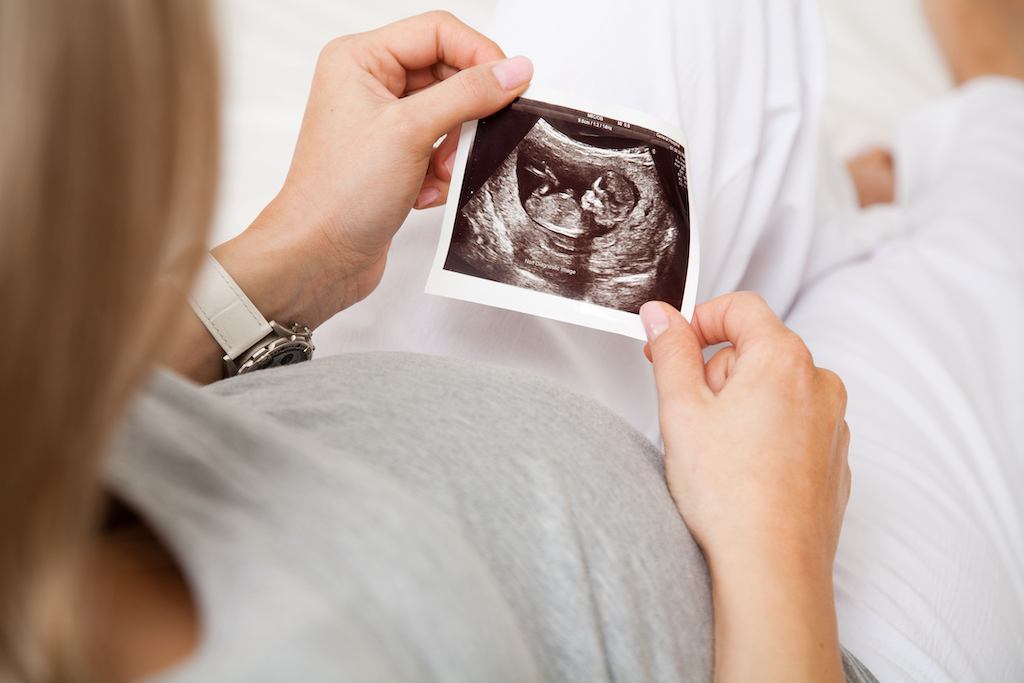Over the years, Dr. Brian Levine has been cited as one of the nation’s leading fertility experts in The New Yorker, New York Post, NBC, CNN, Avenue Magazine among others, offering valuable insight on everything from fertility misconceptions, egg-freezing 101, to how men can boost their fertility. Dr. Levine attended New York University School of Medicine, served as the President of the NYU Alumni Association, and was the only physician on NYU’s Board of Trustees during his 7-year tenure. Recently he was awarded the Meritorious Service Award, the highest award bestowed upon an alumnus for their extraordinary service and continuing devotion to NYU and who embodies the University motto: To Persevere and to Excel. Haute MD Expert, Dr. Brian Levine, discusses healthy lifestyle modifications for both obese and underweight women who are trying to conceive.
 Photo Credit: ShutterstockWhen a patient/couple is on their path to parenthood, we are frequently asked about “what else” can be done to improve their chances of getting or staying pregnant. Typically, the conversations focus on making healthy lifestyle modifications; including avoiding what I call “The 4 W’s:” White sugar, White rice, White wheat, White (aka skim dairy) products. This is also known as the Mediterranean diet (with other modifications).
Photo Credit: ShutterstockWhen a patient/couple is on their path to parenthood, we are frequently asked about “what else” can be done to improve their chances of getting or staying pregnant. Typically, the conversations focus on making healthy lifestyle modifications; including avoiding what I call “The 4 W’s:” White sugar, White rice, White wheat, White (aka skim dairy) products. This is also known as the Mediterranean diet (with other modifications).
Sometimes the conversation goes deeper and gets specific about weight. Frequently patients worry they are “too heavy” or “too thin” to get pregnant. Instead of just telling someone that they should be at their ideal body weight to best prepare themself for the fertility journey, I often give patients concrete data about the impact of weight (aka body mass index) on reproductive outcomes.
Obesity and its Impact on Fertility
According to the American Society for Reproductive Medicine (ASRM), overweight women in the general population have a higher incidence of menstrual irregularity and a lower chance of conception within 1 year of stopping contraception compared with normal-weight women. This is because, with fewer (or irregular) ovulations, there are fewer chances for sperm and egg to meet; let alone at the ideal time when the uterus is in synch with the developing egg.
In women who are obese, there are increased risks of hypertension, dyslipidemia, diabetes, cardiovascular disease (CVD), sleep apnea, respiratory problems, osteoarthritis, and even cancer; all conditions that would make a successful pregnancy high-risk. With respect to pregnancy specifically, overweight women are at an increased risk for conditions such as gestational diabetes, gestational high blood pressure, and pre-eclampsia. These conditions may lead to a medically indicated preterm birth (delivering a child earlier because of medical reasons). While these conditions are limited to pregnancy, the impacts to the mom and baby can be lifelong.
 Photo Credit: ShutterstockLosing weight, even a small amount of weight, before someone gets pregnant, is the best way to reduce the risks caused by obesity. While it is easier said than done, making lifestyle modifications, even small changes to one’s diet, can lead to significant weight loss and risk reduction.
Photo Credit: ShutterstockLosing weight, even a small amount of weight, before someone gets pregnant, is the best way to reduce the risks caused by obesity. While it is easier said than done, making lifestyle modifications, even small changes to one’s diet, can lead to significant weight loss and risk reduction.
Being Underweight and Fertility Problems
On the opposite end of the spectrum, we are frequently asked about women who are “too thin” and how this can affect their chances of getting pregnant. In a landmark 2014 paper, it was found that the time to conception was increased more than twofold among overweight/obese women (BMI >25 kg/m2) and more than fourfold among underweight women (BMI <19 kg/m2). While the authors do comment that women who are severely underweight frequently have irregular menstrual cycles, which may contribute to infertility; I also worry about the health of the uterine environment and whether it is the best place for a nutrient-dependent developing baby.
While people of all body types have babies every day, it’s important to know that our goal is always a healthy mom so we can help them have a healthy baby! If someone is wary of being shamed about their weight, advise them to have an honest conversation (sometimes awkward), with the physician so they can make a plan. Preconception counseling is so important to women who are trying to conceive. This can be a simple in-person or telehealth appointment with an ob/gyn, fertility doctor, or seek the opinion of a high-risk obstetrician (also known as a maternal-fetal medicine specialist). Having a proper evaluation and plan before getting pregnant is the best way to get pregnant and have a healthy pregnancy since the weight has an incredible impact on reproductive outcomes!
For more information, visit Dr. Brian A. Levine's social media:

























